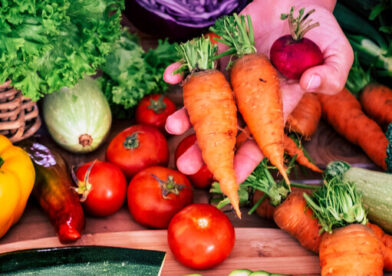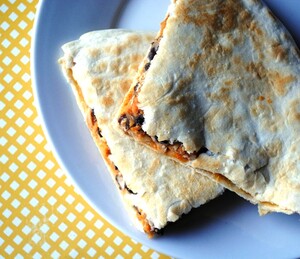Nutrition Resources for WIC
Healthy Food from the Start
WIC provides nutrition support and information to help your child get the best start on a healthy future!
Infant Nutrition
- Breastfeed your baby. Breastmilk is the perfect food for babies. Breastmilk is easily digested and protects your baby from certain illnesses, including ear infections and diarrhea. Breastfeeding has health benefits for mothers, too. It also promotes bonding between infants and mothers—and it’s a lot less expensive than formula. The American Academy of Pediatrics recommends breastfeeding for the first year of your child’s life and beyond.
- Don’t add rice cereal to bottles. A bottle of formula or breastmilk thickened with cereal may cause choking or overfeeding. Food textures should be learned by eating from a spoon when your baby is old enough to sit upright.
- Start spoon-feeding solids at about 6 months. To reduce the likelihood of allergies, wait until 4 to 6 months of age before starting solid foods. Start solids by offering a rice cereal (preferably whole grain, such as brown rice infant cereal). After grains, you can move on to vegetables. Give your baby only one new food at a time, and wait a minimum of two to three days before starting another.
- Offer water after 6 months. After 6 months of age, you can offer your baby water as an extra liquid. Water is a better choice than juice. If you do offer juice, serve 4 ounces or less in a sippy cup, rather than a bottle. (Serving juice in bottles can promote tooth decay.)
- Offer cow’s milk after the first year. Avoid feeding your child cow’s milk until after his or her first birthday. Then, between the ages of 1 and 2, serve whole milk (rather than lowfat milk).
Nutrition for toddlers, preschoolers, and beyond
- Avoid giving your child sodas, sports drinks, and fruit drinks. These beverages are linked to obesity and tooth decay. Instead, help your child develop a taste for water, seltzer water, and skim or 1% milk after two years of age. Pure (100%) fruit juices are a nice treat, but should only be served on occasion. Water is the beverage of choice.
- Make half your grains whole. Serve whole-grain foods, such as whole-wheat bread, oatmeal, brown rice, and lowfat popcorn, more often.
- Vary your veggies. Go dark green and orange with vegetables—serve spinach, broccoli, carrots, and sweet potatoes. From July through October, the East Boston Farmers Market is a fun and convenient way to get fresh, local produce!
- Focus on whole fruits. Serve fruits at meals, and at snack time, too. Choose fresh, frozen, canned, or dried, and go easy on the fruit juice.
- Offer calcium-rich foods. To build strong bones, serve low fat and fat-free milk and other milk products several times a day.
- Go lean with protein. Serve lean or lowfat meat, chicken, turkey, and fish. Add variety with lots of beans and peas. Add chickpeas, nuts, or seeds to a salad; pinto beans to a burrito; or kidney beans to soup.
- Don’t sugarcoat it. Choose foods (and drinks) that do not have sugar or sweeteners as one of the first ingredients. Added sugars contribute calories with few, if any, nutrients. Choosing whole foods, rather than processed foods, is one way to avoid hidden added sugars.
- Model good habits. Eat meals with your child whenever possible. Let your child see you enjoying fruits, vegetables, and whole grains. Your child picks up your attitudes and behaviors—including your eating habits! By enjoying healthy foods and making regular exercise part of your life, your child will observe the importance of a healthy lifestyle.
 Nutrition Resources
Nutrition Resources

